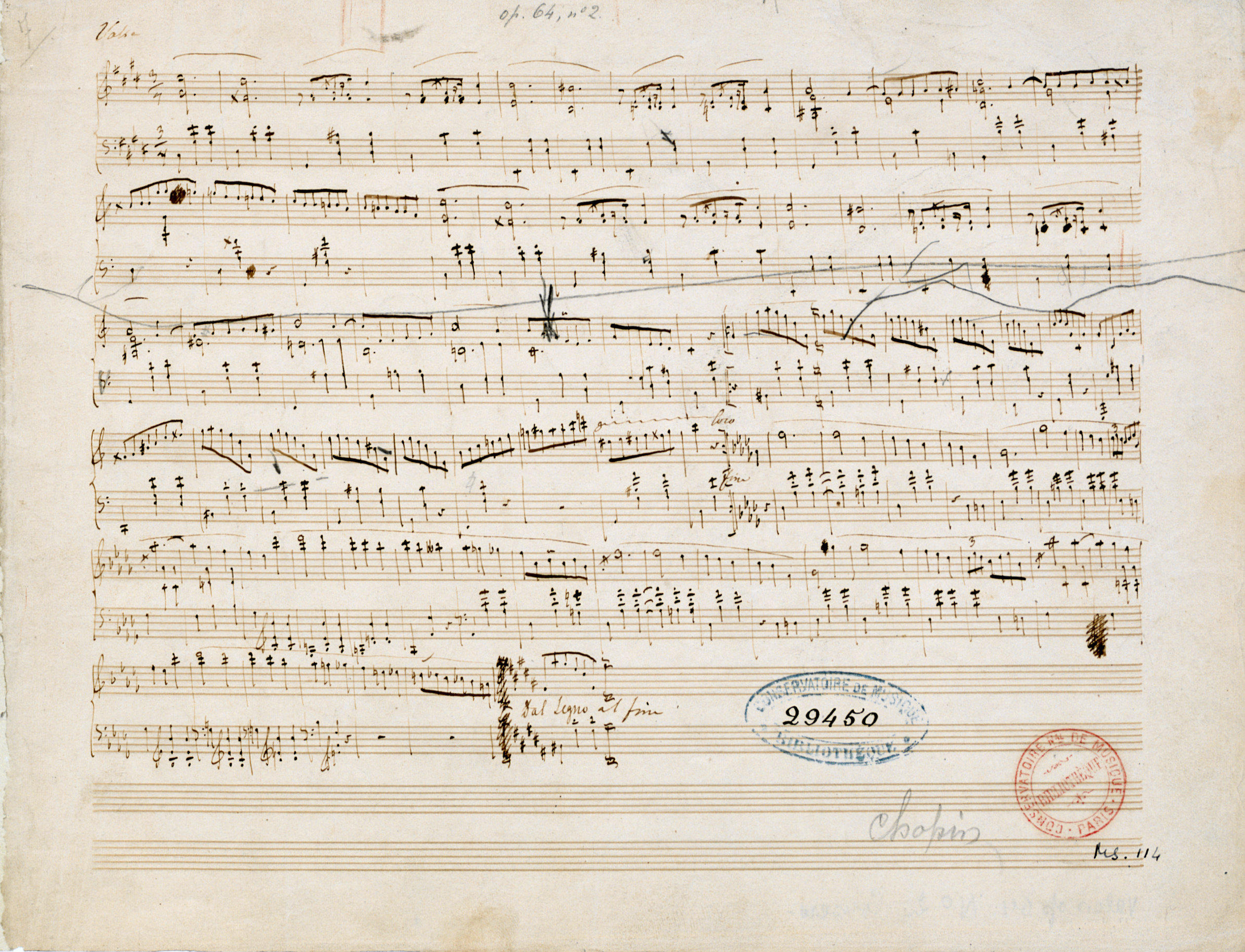Op. 2, Variations in B♭ major
Op. 10, 12 Etudes
Op. 11, Concerto in E minor
Op. 21, Concerto in F minor
Op. 22, Polonaise in E♭ major
Op. 24, 4 Mazurkas
Op. 25, 12 Etudes
Op. 26, 2 Polonaises
Op. 27, 2 Nocturnes
Op. 28, 24 Preludes
Op. 30, 4 Mazurkas
Op. 35, Sonata in B♭ minor
Op. 50, 3 Mazurkas
Op. 63, 3 Mazurkas
Op. 64, 3 Waltzes
(Op. 4), Sonata in C minor




Op. 64 No 2, Waltz in C♯ minor
After the 2nd beat of the bar, AI has a repetition sign, ending the repeated, 16-bar section started on the 3rd beat of bar 32. In order to preserve the parallelism of the notation with the main text based on A (→FE→GE,EE), we write out the marked repetition with notes (the original notation is available in the version "transcription"). We apply a similar procedure in the case of As, although in the draft the repetition of bars 33-48 is not marked in any generally adopted way. In this respect, the double bar line after bar 48 can be considered a hint, although it can also be a signal to change the key (which is not marked as well). The imposing symmetry in the proportions of the particular sections of the Waltz can also be considered an argument – two similarly built 32-bar sections, the initial C minor and più lento D
minor and più lento D major find a natural addition in the separating them section, being also 32-bar long.
major find a natural addition in the separating them section, being also 32-bar long.
Compare the passage in the sources »
category imprint: Differences between sources
notation: Shorthand & other

